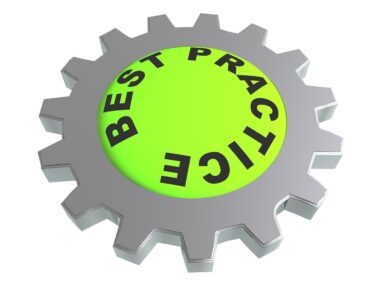The Future of Product Testing in Market Research
The landscape of product testing in market research is rapidly evolving due to technological advancements. Innovations such as artificial intelligence and big data analytics are significantly reshaping how companies conduct research. As we move forward, companies will increasingly rely on advanced analytics to gather insights that were previously unattainable. These tools help in analyzing consumer behavior more accurately, thereby improving the product development process. Furthermore, decision-makers can leverage market research to identify trends and enhance overall customer satisfaction. With the advent of online survey tools, participants now have increased flexibility. This transition opens doors to larger and more diverse consumer pools. In this environment, feedback can be collected and analyzed in real-time. Additionally, integrating social media platforms allows brands to tailor their offerings and respond proactively to market needs. The ability to test products before major launches is a game changer, reducing risks associated with new releases. Companies are now more prepared than ever to make data-driven decisions, enhancing their competitiveness in the market and ensuring they meet emerging consumer expectations.
As the utilization of technology escalates, so does the importance of understanding consumer psychology in product testing. It’s not sufficient to rely solely on data; emotional connections with consumers play a vital role in product acceptance. Behavioral insights are critical to understanding how people interact with products, making it essential for researchers to apply experimental methodologies. Techniques such as focus groups and A/B testing are evolving from traditional formats to more immersive solutions. Virtual reality is emerging as a compelling tool, allowing respondents to experience products in simulations. Through these innovative measures, companies can garner authentic reactions and opinions. These insights, combined with quantitative data, can offer a holistic perspective on product viability. Moreover, this enables companies to make swift adjustments based on consumer feedback. The ongoing investment in identifying and understanding these psychological elements will elevate the effectiveness of product testing. Companies that can successfully align their products with consumer needs through such methods will likely stand out. They can cater not just to what customers want, but to how they feel about product usage, ensuring greater market acceptance.
Advancements in Data Collection
Another aspect critical to the future of product testing is the ability to efficiently collect data. Traditional methods often required extensive manual efforts, which was both time-consuming and costly. In contrast, modern tools like mobile surveys and online panels allow for high-volume data collection at unprecedented speeds. These methods facilitate participant engagement and increase response rates, providing a richer data set for analysis. The ability to gather data from multiple channels, such as social media, online reviews, and website interactions, enhances the breadth of consumer insights. Furthermore, real-time data analytics dashboards enable teams to visualize and interpret findings on-the-fly. This instantaneous feedback loop aids in quicker decision-making processes. Additionally, these data collection methods can be tailored to target specific demographics, ensuring a more representative sample of consumer behavior. When researchers focus on niche aspects of their audience, they can generate targeted insights. Hence, the shift toward automated data collection processes not only improves efficiency but also offers brands detailed analytics for informed product testing and refinement.
In conjunction with technological advancements, ethical considerations are gaining prominence in product testing methodologies. Consumers today are more aware of data privacy issues and expect transparency from brands regarding their data usage. Companies must prioritize ethical practices when conducting market research. Adopting responsible data collection techniques will not only build trust but also enhance brand reputation. It is crucial for businesses to implement stringent privacy policies that comply with regulations such as GDPR. Marketing strategies that emphasize ethical practices can resonate positively with potential customers, enhancing loyalty and trust. Furthermore, creating an open dialogue about consent and utilization of consumer feedback can increase participation rates in research. This ethical approach results in a stronger relationship between brands and consumers, ultimately yielding richer insights. Market research teams must also educate themselves about emerging laws and best practices concerning ethical data collection. An organization’s commitment to ethical standards can significantly impact its long-term success and sustainability in a competitive marketplace. Therefore, as researchers forge ahead, they should make ethics a cornerstone of their product testing frameworks.
Integration of AI and Machine Learning
The integration of artificial intelligence (AI) and machine learning (ML) technologies is increasingly becoming vital in enhancing product testing methods. By automating various components of the testing process, companies can streamline workflows and gain insights faster than ever before. AI algorithms can analyze vast amounts of data, identifying trends, consumer preferences, and optimal product features. This capability allows market researchers to anticipate consumer reactions even before a product is launched, minimizing risks in the market introduction stage. Moreover, machine learning models can learn from previous tests and improve predictive accuracy, guiding businesses to refine their products effectively. Advanced sentiment analysis tools can gauge consumer opinions from social media and online forums, providing real-time feedback. As these technologies become more refined, their application will lead to more personalized consumer experiences. Since consumer-centric products tend to perform better in the market, leveraging data analytics will be crucial. Companies that fail to embrace AI and ML may struggle to keep pace with competitors who are using these tools to enhance their product offerings.
Another key element shaping the future of product testing is the growing emphasis on user experience (UX). As competition becomes fiercer, brands must create products that not only fulfill functional needs but also provide an engaging user experience. A strong UX can be the differentiator between a failed product and a success. This has led to companies investing more in UX research, incorporating usability testing as an integral part of product development cycles. Engaging end-users early in the testing phase provides valuable insights into their preferences, habits, and pain points related to product usability. Researchers can employ methods such as heuristic evaluations and cognitive walkthroughs to gather relevant feedback. Additionally, incorporating feedback during development allows for iterative enhancements, improving overall satisfaction upon launch. User experience is not just about ease of use; it encompasses emotional responses, aesthetic appeal, and overall satisfaction. Brands that prioritize UX in their product testing will likely foster a loyal customer base. A strategic focus on designing products that resonate emotionally with consumers reflects an evolving marketplace that values quality and interaction over mere functionality.
Future Outlook
In conclusion, the future of product testing in market research appears promising, driven by innovation and consumer expectations. With the continued integration of technology, companies will have unprecedented opportunities to refine their products. Emphasizing ethical practices, leveraging AI and machine learning, and focusing on user experience are paramount for organizations looking to thrive. As businesses embrace these advancements, they position themselves to better meet the demands of an ever-changing marketplace. Enhanced data collection methods, combined with a commitment to consumer insights, will foster innovation in product development. Successful companies will not only adapt to these changes but will also leverage them to create meaningful connections with their audience. As we navigate the future, organizations must remain flexible and responsive to evolving consumer needs, ensuring that their market research strategies are aligned. The continuous feedback loop from testing will lead to successful product launches, as witness by brands who successfully implement these evolving practices. Thus, engaging customers at every step will remain critical to achieving sustainable growth and satisfaction in the marketplace.
As the advancements revolutionize product testing, it’s crucial for market researchers to stay up-to-date with industry trends. Constant learning and adaptation will ensure that they are equipped to harness new methodologies effectively. Facilitating an agile research approach will allow organizations to pivot quickly based on consumer feedback. By prioritizing growth and innovation, businesses can turn product testing into a strategic advantage, leading them to new heights in today’s competitive marketplace. Companies that understand the significance of these trends will be prepared to capture and adapt to market opportunities.





